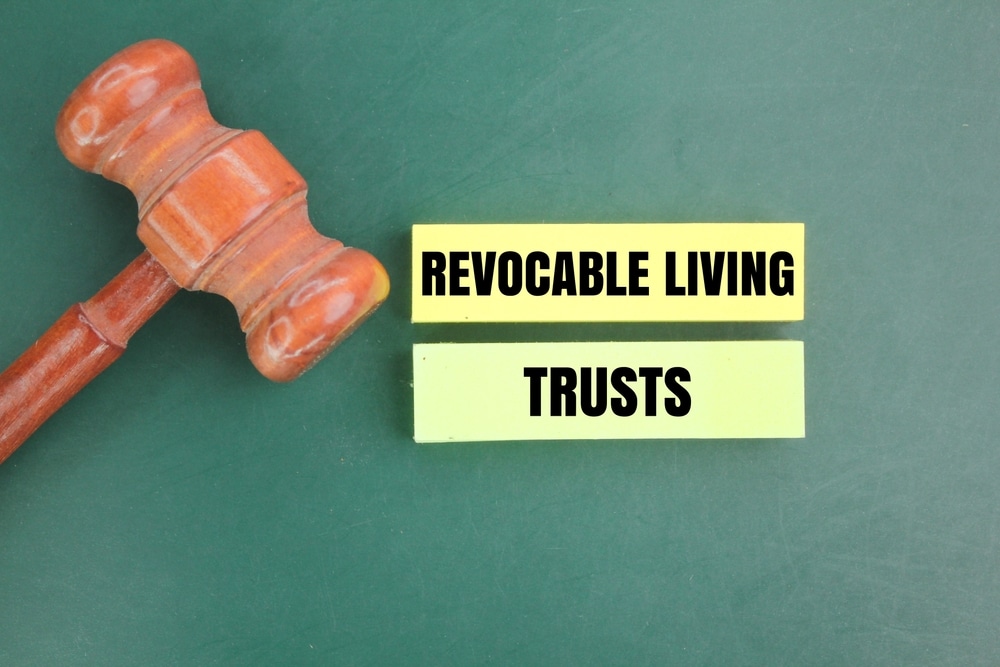When families in Illinois start planning for the future, one of the most common concerns we hear is about probate. Probate is the court-supervised process of distributing assets after someone passes away, and it can be time-consuming, expensive, and stressful for loved ones. As attorneys, we often recommend a revocable living trust as one of the most effective tools to keep assets out of probate and ensure a smoother transfer of property. A trust provides flexibility during life, as it can be amended or revoked, and after death, it can simplify the management of a person’s estate. Many of our high-asset divorce clients also benefit from incorporating trusts into their estate plans as part of broader strategies to protect wealth.
What A Revocable Living Trust Does
A revocable living trust is an estate planning tool that allows you to transfer ownership of assets into the trust while still maintaining control during your lifetime. Under 760 ILCS 5/1 et seq. (Illinois Trusts and Trustees Act), individuals in Illinois are permitted to create trusts to manage and distribute their property. Unlike a will, which must go through probate, assets in a properly funded trust usually bypass probate completely. This means beneficiaries can receive their inheritance more quickly and privately.
How To Fund The Trust
Creating the trust document is only the first step. Assets must actually be transferred into the trust’s name for it to be effective. This process, called “funding the trust,” may involve retitling real estate, bank accounts, or investment accounts so that the trust is the legal owner. If a trust is signed but never funded, those assets may still end up in probate. As attorneys, we often guide our clients through this process to make sure no property is overlooked.
Why Probate Avoidance Matters
Probate can take months or even years, depending on the complexity of the estate. Fees are also a factor: court costs, attorney’s fees, and administrative expenses reduce the value of the estate passed to heirs. Under the Illinois Probate Act, formal court oversight applies to most estates valued over $100,000. By using a revocable living trust, families often avoid these hurdles, allowing heirs to receive property directly, without unnecessary delay.
Protecting Family Privacy
Another major benefit of a trust is privacy. Probate proceedings are public record under Illinois law, which means anyone can access details about the estate, including asset values and who inherits them. A trust operates privately, with only the trustee and beneficiaries aware of its terms. For families with significant assets or public reputations, this can be especially valuable.
Relationship To Divorce Considerations
As high-asset divorce lawyers, we see trusts intersect with family law matters as well. While a revocable trust does not automatically shield assets from division in divorce, it can still play a role in broader estate planning strategies. For example, trusts can clarify how property will pass to children or other heirs, regardless of future marital changes. In complex divorces, we work with clients to ensure estate plans and trusts align with divorce settlements and asset division agreements.
Estate Planning Frequently Asked Questions
What Is The Difference Between A Revocable Trust And An Irrevocable Trust?
A revocable trust allows the person who creates it to make changes or cancel it at any time while alive. An irrevocable trust, by contrast, cannot easily be changed once created. The flexibility of a revocable trust makes it a common choice for those focused on probate avoidance.
Do I Still Need A Will If I Have A Trust?
Yes, most people still need what’s called a “pour-over will.” This type of will ensures that any assets not placed into the trust during life are transferred to it after death. Without it, those assets could still be subject to probate.
Who Should Serve As Trustee Of My Revocable Trust?
Many people name themselves as trustee during their lifetime and then appoint a trusted family member, friend, or professional to serve as successor trustee after death or incapacity. The trustee’s role is to manage and distribute trust assets according to the trust’s terms.
Does A Revocable Trust Protect Assets From Divorce?
No, because revocable trusts remain under your control, the assets are typically considered part of your estate and may be subject to division during divorce. However, trusts can be part of a larger estate plan that clarifies long-term intentions for asset distribution.
How Does A Trust Help My Family Avoid Disputes?
Because trusts operate outside of probate, the terms are carried out privately and without court oversight. This can reduce opportunities for disputes among heirs, as the trustee has clear instructions for how to handle assets.
Are There Tax Advantages To Using A Revocable Trust?
A revocable trust does not provide direct tax advantages during your lifetime, since you maintain control of the assets. However, it can be paired with other estate planning strategies to reduce estate tax exposure for larger estates.
Call Bruning & Associates, P.C. For A Free Consultation
At Bruning & Associates, P.C., we help families throughout Chicago and the suburbs understand how revocable living trusts fit into their estate planning goals. If you want to protect your loved ones from the delays and costs of probate, we can help create a plan that works for your family’s unique circumstances.
Contact our Chicago estate planning attorney at Bruning & Associates, P.C. by calling (815) 455-3000 to receive your free consultation. Our offices are located in Chicago, Crystal Lake, and Schaumburg, and we serve clients throughout the entire Chicagoland metro area.



